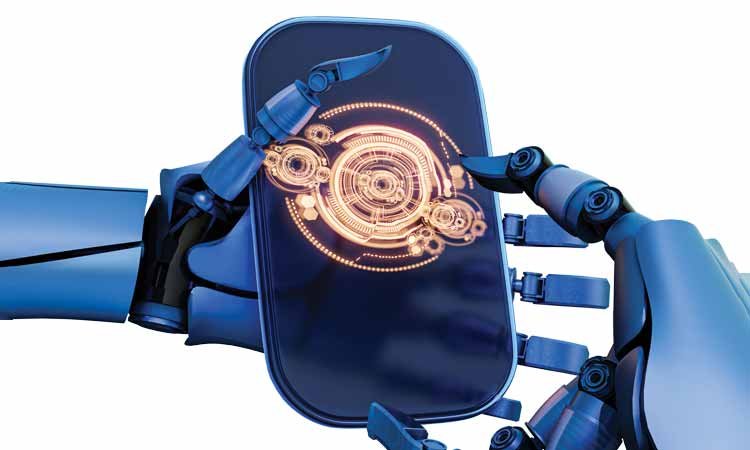In recent years, the bearing industry has undergone a significant transformation fueled by digitalization and the integration of Industry 4.0 technologies. This shift has revolutionized manufacturing processes, supply chain management, and maintenance practices, paving the way for enhanced efficiency, productivity, and competitiveness.
In an era defined by rapid technological advancement and digital innovation, the bearing industry stands at the forefront of transformation. The integration of digitalization and Industry 4.0 principles has ushered in a new era of manufacturing, characterized by interconnected systems, data-driven decision-making, and enhanced efficiency. This article delves into the multifaceted effects of digitalization and Industry 4.0 integration on the bearing industry, exploring how these advancements are reshaping production processes, supply chain management, and product innovation.
Smart Manufacturing and IoT Integration:
At the heart of Industry 4.0 lies the concept of smart manufacturing, where machines, systems, and processes are interconnected and capable of autonomous decision-making. In the bearing industry, this translates into the adoption of IoT (Internet of Things) devices and sensors embedded within machinery and production lines. These sensors collect vast amounts of data on various parameters such as temperature, vibration, and lubrication levels in real-time. By leveraging this data, manufacturers can gain insights into equipment performance, predict maintenance needs, and optimize production processes for improved efficiency and reliability.
Predictive Maintenance and Data Analytics:
One of the most significant advantages of digitalization in the bearing industry is the implementation of predictive maintenance strategies. By analyzing the data collected from IoT sensors and employing advanced analytics techniques such as machine learning and predictive modeling, manufacturers can anticipate equipment failures before they occur. This proactive approach to maintenance minimizes unplanned downtime, reduces maintenance costs, and extends the lifespan of critical machinery. Moreover, data analytics enables continuous improvement by identifying patterns, trends, and opportunities for optimization within the production process.
Digital Twins and Virtual Simulation:
Digital twins, virtual replicas of physical assets and processes, have emerged as powerful tools in the bearing industry for design optimization and performance monitoring. Manufacturers create digital twins of bearings, production lines, or entire facilities, allowing them to simulate different operating scenarios and conduct virtual testing. This virtual representation enables engineers to identify potential design flaws, optimize performance parameters, and explore innovative solutions without the need for physical prototypes. By leveraging digital twins, manufacturers can accelerate product development cycles, improve product quality, and reduce time-to-market.
Supply Chain Optimization and Transparency:
Digitalization facilitates end-to-end visibility and transparency across the bearing industry supply chain. Through the use of digital platforms, cloud-based systems, and blockchain technology, manufacturers can track the movement of raw materials, components, and finished products in real-time. This enhanced visibility improves inventory management, reduces lead times, and enhances collaboration with suppliers and distributors. By streamlining supply chain processes and minimizing inefficiencies, digitalization enables manufacturers to respond swiftly to market demands and customer requirements.
Customization and Personalization:
Industry 4.0 technologies empower bearing manufacturers to offer greater customization and personalization options to customers. Digital tools and automation enable rapid prototyping and on-demand production, allowing manufacturers to tailor bearings according to specific customer requirements, preferences, and applications. Whether it’s adjusting dimensions, materials, or performance characteristics, digitalization enables flexibility and agility in meeting the diverse needs of customers across various industries. This customization capability enhances customer satisfaction and fosters long-term partnerships based on trust and reliability.
Smart Manufacturing: The integration of digital technologies such as IoT (Internet of Things), cloud computing, and artificial intelligence has enabled the implementation of smart manufacturing practices in the bearing industry. Production facilities are equipped with sensor-equipped machinery and interconnected systems that collect real-time data on production processes, machine performance, and product quality. This data-driven approach allows for predictive maintenance, optimized production scheduling, and improved decision-making.
Advanced Analytics: With the vast amount of data generated by digital sensors and systems, advanced analytics techniques such as machine learning and predictive analytics are employed to extract valuable insights. Manufacturers can analyze historical data to identify patterns, predict equipment failures, and optimize production parameters. By leveraging predictive maintenance algorithms, bearing manufacturers can proactively address issues before they escalate, reducing downtime and maintenance costs.
Digital Twins: Digital twins, virtual replicas of physical assets and processes, are increasingly utilized in the bearing industry to optimize design, simulation, and performance monitoring. By creating a digital twin of a bearing or an entire production line, manufacturers can simulate different operating conditions, conduct virtual testing, and identify potential optimizations. This virtual representation enables continuous improvement and innovation, leading to enhanced product quality and reliability.
Supply Chain Optimization: Digitalization facilitates end-to-end visibility and transparency across the supply chain, enabling seamless collaboration with suppliers, distributors, and customers. Through the use of digital platforms and blockchain technology, manufacturers can track the movement of raw materials, components, and finished products in real-time. This enhanced visibility improves inventory management, reduces lead times, and enhances responsiveness to market demands.
Customization and Personalization: Industry 4.0 technologies enable greater flexibility and customization in the manufacturing process. Bearing manufacturers can leverage digital tools to tailor products according to specific customer requirements, preferences, and applications. Whether it’s adjusting dimensions, materials, or performance characteristics, digitalization allows for rapid prototyping and on-demand production, meeting the diverse needs of customers across various industries.
Enhanced Quality Control: Digitalization enables real-time monitoring and control of production processes, ensuring consistent quality and adherence to industry standards. Automated inspection systems, equipped with machine vision and AI algorithms, detect defects, deviations, and non-conformities with high precision and accuracy. By minimizing variability and defects, manufacturers can deliver products with superior quality and reliability, enhancing customer satisfaction and loyalty.
The integration of digitalization and Industry 4.0 technologies is revolutionizing the bearing industry, driving innovation, efficiency, and competitiveness. By embracing smart manufacturing practices, advanced analytics, and digital twins, manufacturers can optimize production processes, enhance product quality, and respond swiftly to changing market dynamics. As digitalization continues to evolve, the bearing industry is poised to embrace new opportunities and unlock further advancements in the years to come.



